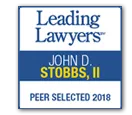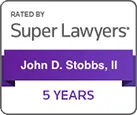Recent events have forced our society to confront unpleasant realities with respect to law enforcement. In light of numerous recent police controversies, the public’s faith in those who “serve and protect” has faded substantially. Only two days after Freddy Gray’s suspicious death in police custody, the Supreme Court issued its decision in Rodriguez v. United States. The case represents a significant, but incomplete, victory for those fighting against the abuse of police power. Tensions between police and communities have permeated throughout the Supreme Court’s most recent term. Slate writer Mark Joseph Stern opined that Rodriguez signifies a change of perspective attributable to fallout from Michael Brown’s death in Ferguson.
On March 27, 2012, Nebraska K-9 Officer Morgan Struble pulled over Dennys Rodriguez after observing his SUV veer momentarily onto the shoulder. Struble then inspected Rodriguez’s license and registration, checked for outstanding warrants, and issued a written warning. Vexingly, the officer refused to allow Rodriguez to leave despite issuing him a ticket and returning all his documents. Instead, Struble waited for a second officer to arrive at the scene before having a police dog sniff the car for drugs.
The Eight Circuit Court and Supreme Court Clash
Seven or eight minutes passed from the issuance of the ticket and dog’s alert. After the Eighth Circuit affirmed the conviction, the Supreme Court reversed. The ruling, described most generally, precludes police officers from extending a traffic stop longer than necessary to address the traffic issues at hand and “negligably burdensome” safety precautions. Once the police hand you a ticket, they must let you leave. The ruling seems straight forward enough, but concerns remain regarding the practical enforcement of such a restriction and its ramifications for further cases.
A close look at Justice Ginsburg’s opinion for the Court’s 6-3 majority reveals some interesting questions about the interplay of timing and the interests served by a traffic stop. Routine car stops necessarily entail certain activities related to the enforcement of traffic laws. The Court expressly notes checks of registration, insurance, licenses, and outstanding warrants as acceptable police activities. Additionally, police may undertake certain safety precautions which otherwise do not advance the interest of the stop. The opinion unequivocally states, police seizures remain lawful “so long as [unrelated] inquiries do not measurably extend the duration of the stop.” The opinion also makes clear that officers cannot drag their feet while conducting permissible activities because authority for the seizure ends “when tasks tied to the traffic infraction are—or reasonably should have been—completed.”
Rodrigues vs. United States Provides Guidance for Police Conduct
The critical inquiry for future cases lies in the nature of police conduct: was the officer advancing goals related to the “mission” of the stop or reasonable safety interests and, if not, did these activities extend the duration of the stop? Rodriguez provides some guidance. Under Ginsburg’s rationale, activities aimed at “ensuring that vehicles on the road are operated safely and responsibly” relate to the goals of enforcing the traffic code and are thus permissible. Conversely, actions directed towards the enforcement of “ordinary criminal wrongdoing” do not relate to such goals and may not be undertaken unless doing so does nothing to slow down the process.
Here lies the failing of Rodriguez. Rather than outrightly prohibit police overreach, it seeks to disincentivize it. This failure becomes apparent when one considers the case of a traffic stop conducted by multiple officers. If Officer Struble rode with a (human) partner or backup arrived earlier, one officer could handle the proper duties for the stop while the other peers in windows, does “safety” pat-downs of other passengers, or walks a drug-sniffing dog around the exterior of the car. In fact, the latter situation occurred with the Court’s approval in 2005’s Illinois v. Caballes.
This case has rightly been viewed as a significant step towards curtailing the potential police overreach and pretext with respect to the traffic stop. One would hope, as it has been suggested, the Supreme Court has taken stock of the problems police have with overreach. However, while the Court appears to be moving forward, they fall short of fully appreciating problems at hand. They have adapted, but they are still behind the times.
SOURCES
Mark Joseph Stern, The Ferguson Effect, SLATE, April 21, 2015
Orin Kerr, Explaining Heien and Rodriguez, WASHINGTON POST, April 22, 2015, available at
Orin Kerr, Police Can’t Delay Traffic Stops to Investigate Crime, WASHINGTON POST, April 21, 2015
Rodriguez v. United States, No. 13-9972 (U.S. Apr. 21, 2015).




